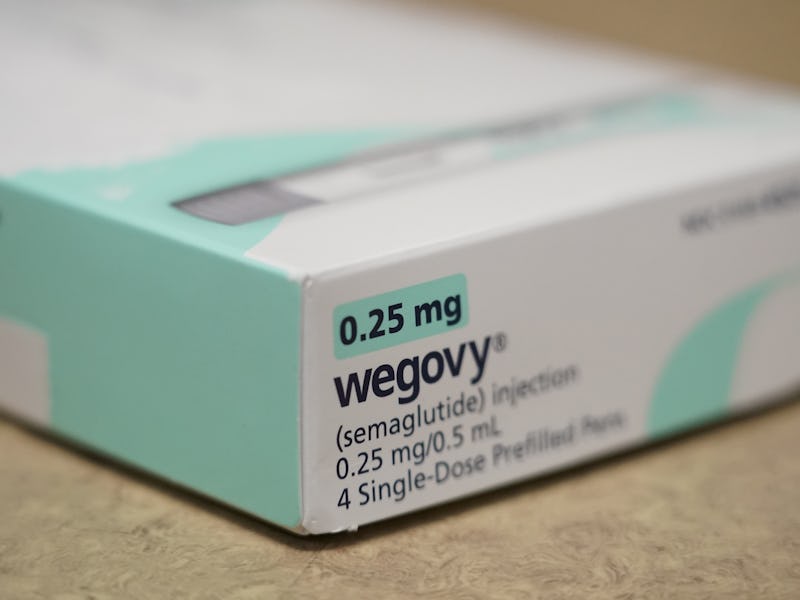Ozempic and Other Weight Loss Drugs Might Inadvertently Slash Systemic Inflammation
It might lend to new treatments for chronic diseases.

If you thought weight loss headliners like Ozempic and the latest Zepbound were only good for shedding pounds, think again: These drugs may help the body fight inflammation.
That’s according to new research out of Canada that found the class of drugs Ozempic belongs to — called GLP-1 receptor agonists — may be tempering inflammation in all parts of the body through a gut-brain-immune system pathway. When researchers induced a systemic inflammatory condition known as sepsis in mice, the drug reduced inflammation throughout different organ systems as long as it could still interact with the brain.
These findings were published early this week in the journal Cell Metabolism.
While preliminary, these results offer weight to an emerging trend tying GLP-1 receptor agonists as more flexible in their therapeutic might, not just in controlling blood sugar and reducing body weight but also in counteracting chronic inflammatory maladies like atherosclerosis or kidney disease.
Calming the storm
Glucose-like peptide 1 (or GLP-1) is a hormone produced in our guts after eating and does several different things. As blood sugar levels rise, GLP-1 coaxes the body to make more insulin, which helps bring blood glucose back to normal. Through the gut-brain axis, a bidirectional communication network, it acts on areas of the brain involved in regulating hunger and satiety. GLP-1 also slows down the rate at which food leaves your stomach, meaning that glucose is absorbed more slowly, and you feel fuller for longer.
GLP-1 receptor agonists work by mimicking our natural hormone, interacting with the same receptor (a protein on the cell surface that communicates outside messages to the cell’s interior) as GLP-1.
“One of the really interesting things about the GLP-1 drugs is that beyond the control of blood sugar and body weight, they also seem to reduce the complications of chronic metabolic disease,” Daniel Drucker, the study’s senior author and a professor of medicine at the University of Toronto, said in a press release. “The strange thing is that you can’t find many GLP-1 receptors in all these other organs where GLP-1 seems to work.”
To better understand how these drugs are able to do this in spite of this dearth, Drucker and his colleagues started with the brain, where there’s an abundance of GLP-1 receptors.
First, they injected healthy male mice with bits and pieces of bacteria to induce a life-threatening condition called sepsis, where the body’s immune system goes into overdrive to fight the infection. This overreaction leads to widespread inflammation and can trigger a cascade of changes that damage multiple organ systems, making them fail.
Some mice were treated with the GLP-1 receptor agonists semaglutide (also known by its popular brand names like Ozempic and Wegovy), exenatide, or tirzepatide (which additionally contains a mimic of another insulin-stimulating hormone called gastric inhibitory polypeptide).
The researchers found these drugs were able to calm the immune system, reducing levels of chemicals like TNF-alpha that are naturally produced during inflammation. However, this benefit was only possible if the drugs interacted with GLP-1 receptors in the brain. In mice genetically modified not to have the receptors in their brains, the drugs didn’t stop sepsis. The same went for healthy mice who had their GLP-1 receptors blocked with a chemical injected directly into the brain.
Further insight needed
It’s important to note these results are in otherwise healthy male mice and need reproducing in human studies before we can validate the study’s medical or clinical significance for actual disease treatment.
This study also only looked at inflammation within a short time scale in mice. In the context of long-term or chronic inflammation — the type contributing to medical conditions like diabetes, obesity, or Alzheimer’s disease — it’s not entirely clear how appreciable the benefits of GLP-1 receptor agonists will be for extended periods of inflammation. So far, results from one study published in November found Novo Nordisk’s Wegovy may cut the risk of heart attack, stroke, or death from cardiovascular issues by 20 percent among those with heart disease who are overweight or obese.
For their part, the researchers say the next steps are to identify the exact location and identity of brain cells — whether neurons or other supporting cells like astrocytes or oligodendrocytes — involved in the gut-brain-immune system pathway.
So be on the lookout for not just the next new weight loss drug, but one that can also take down inflammation in one fell swoop.